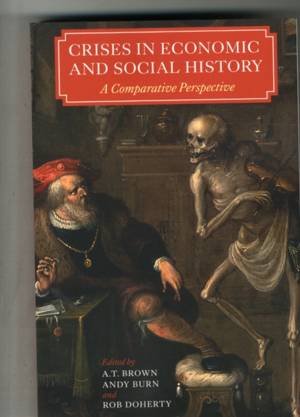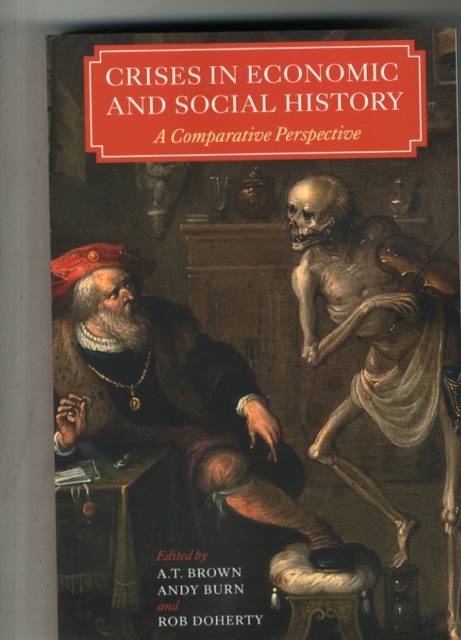
Bedankt voor het vertrouwen het afgelopen jaar! Om jou te bedanken bieden we GRATIS verzending (in België) aan op alles gedurende de hele maand januari.
- Afhalen na 1 uur in een winkel met voorraad
- Gratis thuislevering in België vanaf € 30
- Ruim aanbod met 7 miljoen producten
Bedankt voor het vertrouwen het afgelopen jaar! Om jou te bedanken bieden we GRATIS verzending (in België) aan op alles gedurende de hele maand januari.
- Afhalen na 1 uur in een winkel met voorraad
- Gratis thuislevering in België vanaf € 30
- Ruim aanbod met 7 miljoen producten
Zoeken
Crises in Economic and Social History
A Comparative Perspective
€ 59,95
+ 119 punten
Omschrijving
This collection of essays brings together historians examining social and economic crises from the thirteenth century to the twenty-first. Crisis is an almost ubiquitous concept for historians, applicable across (amongst others) the histories of agriculture, disease, finance and trade. Yet there has been little attempt to compare its use as an explanatory tool between these discrete fields of research. This volume breaks down the boundaries between traditional historical time periods and sub-disciplines of history to examine the ways in which past societies have coped with crises, and the role of crisis in generating economic and social change. Should we conceptualise a medieval agrarian or financial crisis differently from their modern counterparts? Were there similarities in how contemporaries responded to famine or outbreaks of disease? How comparable are crises within households, within institutions, or across national and international networks of trade? Contributors examine how crises have shaped economic and social life in a range of studies from the Great Depression in 1930s Latin America to the outbreak of plague in seventeenth-century central Europe, and from sheep and cattle murrain in fourteenth-century England to the Northern Rock building society collapse of 2007. A. T. BROWN is an Addison Wheeler Research Fellow at the Institute of Advanced Studies at Durham University. ANDY BURN is a postdoctoral researcher at the Institute of Medieval and Early Modern Studies at Durham University. ROB DOHERTY is a doctoral candidate in history at Durham University. CONTRIBUTORS: Peter H. Bent, A.T. Brown, Andy Burn, Catherine Casson, Mark Casson, Samuel K. Cohn, Jr., Rob Doherty, Josette Duncan, Matthew Hollow, Pavla Jirkova, Alan Knight, John S. Lee, Cinzia Lorandini, John Martin, Ranald Michie, Anne L. Murphy, Pamela Nightingale, John Singleton, Philip Slavin, Paul Warde
Specificaties
Betrokkenen
- Uitgeverij:
Inhoud
- Aantal bladzijden:
- 420
- Taal:
- Engels
- Reeks:
- Reeksnummer:
- nr. 6
Eigenschappen
- Productcode (EAN):
- 9781783270422
- Verschijningsdatum:
- 19/11/2015
- Uitvoering:
- Paperback
- Formaat:
- Trade paperback (VS)
- Afmetingen:
- 156 mm x 234 mm
- Gewicht:
- 589 g

Alleen bij Standaard Boekhandel
+ 119 punten op je klantenkaart van Standaard Boekhandel
Beoordelingen
We publiceren alleen reviews die voldoen aan de voorwaarden voor reviews. Bekijk onze voorwaarden voor reviews.








